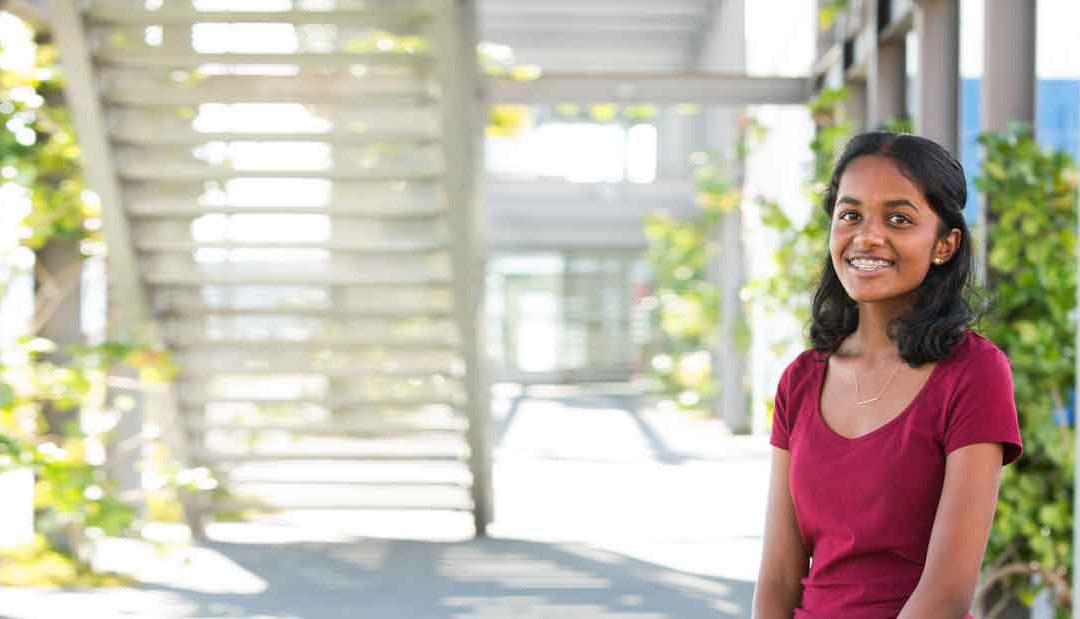So, on Monday…I had my very first test of the year. While it wasn’t worth that much, there was an extra aura of heaviness around because not only was it the first test of the year, it was also probably everyone’s first university test ever. So, here’s some handy tips for your first test!
A FEW DAYS BEFORE
CHOOSE A STUDY SPACE. If you have one space that is dedicated to studying, you will be less likely to get distracted! Here are five places, all of which are within the City Campus:
- The General Library: Several floors with separated desks which is ideal for individual studying. Hard to get distracted in here because it is generally quiet and everyone else around you is studying too!
- Kate Edgar Information Commons: Level 0 of Kate Edgar has a common study space with lots of tables – can talk freely and do whatever. Also, the other levels of Kate Edgar have computer labs, where you can use the internet/print/photocopy to your delight.
- Owen G Glenn Building: The higher up floors have lots of little enclosed rooms (‘break-out rooms’) which could each fit a bunch of people – perfect for private group study sessions.
- The Science Centre: Lots of sofas and tables. Not exactly quiet as it is just another building of the Uni with students coming in and out for lectures and labs.
- Hall of Residence Study Rooms: If you’re any of the University hall of residences like I am, there will be at least one study room with computers, a printer, and lots of desks. The fact that it is literally in the building where you are living makes it so easy to get there.
MAKE STUDY GROUPS. It helps to understand the content even better, if you teach it to somebody else. It also gives you motivation to get stuff done, as you can work through papers together, share notes and quiz each other! #whatfriendsarefor
MAKE USE OF YOUR RESOURCES. The test was a pretty similar style to previous years, so make use of past papers but also the course guide, lecture recordings, online activities, and all that good stuff.
THE DAY BEFORE
BE ORGANISED. Make sure you know where your exam room is! It may be in a totally different faculty or building that you’ve never ventured in before, so a good idea would be to find out where it is the day before, to save you worrying on the day.
DE-STRESS. Take breaks. Clear your mind. I’ve been going to the Yoga classes run by the Auckland Uni Rec Centre. If yoga’s not your thing, there’s heaps of other group fitness classes available which you can check out here. Because I’m staying at a Hall of residence, I have free gym membership for the year (perks), but even if you’re not intending to stay at a hall, the Uni gym is really affordable (works out to around less than a $1 per day!).
SLEEP. All our mid-semester tests are evening tests which start at 6:30pm, so make sure you get a good night’s sleep the night before (no all-nighters!). Maybe even a nap in the afternoon on the day, if you need it.
ON THE DAY
EAT. Like I said, 6:30pm exams. So, it’s important you’re fueled up with food to attack those questions. If you’re at a hall, all your food is fully-catered so you don’t have to think about this at all (more perks).
THE TEST.
- Reading Time. On top of your test time (eg my test was 1 hour), most Uni exams will have an extra 10 minutes of reading time at the start of your exam. During this time, you can flick through the entire test, but aren’t allowed to write or answer anything. Bless whoever invented reading time!
- Multi-choice. In Uni, a lot of tests are half multi-choice questions or even full MCQ. Chances are if you’re like me, the last time you did a multi-choice exam, was one of those ICAS ones many years ago…best tip would be to make sure you read ALL the answers before choosing.
- Time. Keep track of time. An hour goes by quicker than you would think!
THE DAY AFTER
RELAX. Treat yo self. You deserve it 🙂
Hard to believe but we’re nearly one quarter of the way through uni. Mid-semester break starts end of this week and I will be basking in the glory of 2 full weeks of no lectures/labs/tutorials/anything!








I am into procrastinating too.
We’d be great friends.
Hi there! I was just wondering are any of the first year biomed papers multichoice?
Hi! BIOSCI101 and BIOSCI107 in the first semester and BIOSCI106 in the second semester are FULL multichoice for both the mid-semester test and end-of-semester exam. But even all the other papers like CHEM110, POPLHLTH111, PHYS160 & MEDSCI142 have parts that are multichoice too (eg multichoice for the mid-semester test but not for the end-of-semester exam) 🙂
Hiya, just thought I’d add in that at Kate Edgar on floor 1 there’s a silent desk study area which is good for solo study 🙂 Oh and the arts and human sciences buildings have some neat tables to study in a quiet environment too, solo or with mates 🙂 Thanks for telling me about the OGGB levels, I’ve never been on the higher levels before! I also heard there are higher levels in the general library, how are they compared to the ground floor and can you talk on them? Also you should mention in your future posts the locations of microwaves on campus, as many students bring tupperware lunches from home — I know that microwaves are located downstairs in the engineering building (enter, turn right and go down the staircase), in the arts building (in the area with many tables, vending machines and a sink, there are about 3 or 4 microwaves) and AUSA’s Womenspace (enter from the Quad staircase or Kate Edgar)
Thanks i have been looking for a microwave. extremely helpful reply and great advice 😛
Hi Sonna! I enjoy reading your blogs 🙂 I’m a first year student in the faculty of science, double majoring in chemistry and biological sciences. I’m wondering if I would be able to switch to biomedical science next semester or next year because I’m unhappy with my major, but the papers I’m doing are almost the same as the 1st year biomed course (with the exception of medsci142 and physics160) so will I have to retake them all or can I still cross-credit? I have already been enrolled for this semester and you can’t retake a paper that you have gotten grades for already. Also do I have to have a certain grade-point average (GPA) to get into biomed? How does a uni student switch to biomedical science?
Hi Nazanin,
This sounds like a question best answered by your faculty student centre. Head over to the science building where their office is and have a chat to the friendly team there.
Thanks for your comment!
Hey there!
I’m really enjoying your blog so far and look forward to reading more!
I was just wondering why you decided to do biomed instead of health sci?
And also for interviews, whether high school stuff can still count? And lastly, if you didn’t do much leadership based stuff in highschool, will that affect your chances of getting in??
Thanks
Molly 🙂
Hey hey hey! I decided to do biomed instead of healthsci mostly because…I couldn’t get into healthsci! In my final year of high school i took only table B subjects (bio, chem, phys, stats, eco) and healthsci requires a table A subject (english or english-based). Although, I will be definitely addressing this mighty decision in an upcoming blog in more detail. Regarding leadership stuff, if you mean getting into Uni/biomed – not at ALL! OR if you mean med/pharmacy/optom entry – not at all as well but can be *helpful* for the interview. High-school cocurriculars don’t directly count towards the interview…BUT the skills and experiences you learn from doing them could definitely help! If you want to know about anything else at all, lemme know 🙂
What paper did you have your test in? Did you get your marks yet?